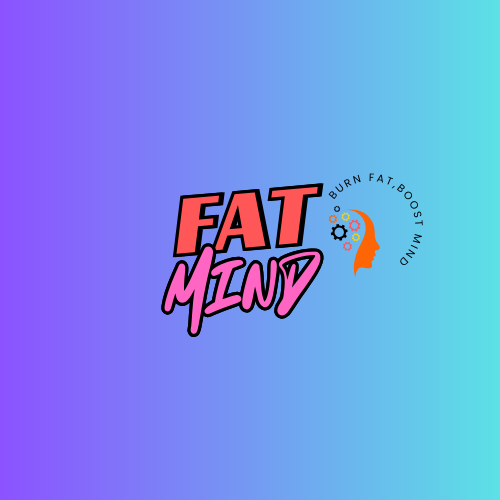Introduction: The Gut-Brain Connection Explained
Did you know that your gut and brain are directly connected? Scientists call this the gut-brain axis, a two-way communication system linking your digestive system to your central nervous system.
Your gut is home to trillions of bacteria that influence mood, stress levels, and cognitive function. An unhealthy gut has been linked to anxiety, depression, brain fog, and even neurodegenerative diseases. On the other hand, a balanced gut microbiome can enhance mental clarity, reduce stress, and improve emotional well-being.
In this article, we’ll explore how gut health impacts mental health and provide practical steps to improve both.
The Science Behind the Gut-Brain Axis
1. How the Gut and Brain Communicate
- The gut and brain communicate through the vagus nerve, the body’s longest cranial nerve.
- Neurotransmitters like serotonin and dopamine—which regulate mood—are largely produced in the gut.
- Inflammation in the gut can lead to neuroinflammation, worsening mental health conditions.
2. The Role of the Microbiome in Mental Health
- Your gut contains 100 trillion bacteria, forming the gut microbiome.
- Good bacteria produce short-chain fatty acids (SCFAs), reducing inflammation and supporting brain function.
- An imbalance in gut bacteria (dysbiosis) has been linked to anxiety, depression, and cognitive decline.
How Poor Gut Health Leads to Mental Health Issues
1. Gut Inflammation Increases Stress and Anxiety
- A leaky gut allows harmful bacteria and toxins to enter the bloodstream, triggering inflammation.
- Chronic inflammation can disrupt cortisol levels, leading to increased stress and anxiety.
2. Gut Bacteria Regulate Mood-Boosting Neurotransmitters
- 90% of serotonin (the happiness hormone) is produced in the gut.
- Low serotonin levels are linked to depression, anxiety, and sleep disorders.
- A disrupted microbiome can also affect dopamine production, reducing motivation and focus.
3. Poor Gut Health Worsens Brain Fog and Fatigue
- Imbalanced gut bacteria affect nutrient absorption, leading to deficiencies in B vitamins, magnesium, and omega-3s—all crucial for brain health.
- Toxins from bad gut bacteria can impair cognitive function, leading to brain fog, fatigue, and poor memory.
Best Foods for a Healthy Gut and Mind
1. Probiotic-Rich Foods (Increase Good Bacteria)
- Yogurt (unsweetened)
- Kefir
- Sauerkraut
- Kimchi
- Miso
- Tempeh
2. Prebiotic Foods (Feed Good Bacteria)
- Garlic
- Onions
- Bananas
- Asparagus
- Oats
- Flaxseeds
3. Anti-Inflammatory Foods (Reduce Stress & Inflammation)
- Fatty fish (salmon, sardines)
- Leafy greens (spinach, kale)
- Berries (blueberries, strawberries)
- Turmeric
- Ginger
4. Foods to Avoid (Harm Gut Health and Mental Clarity)
- Processed foods (fast food, packaged snacks)
- Refined sugar (candies, sodas, pastries)
- Artificial sweeteners (aspartame, sucralose)
- Alcohol and excessive caffeine
Lifestyle Changes to Improve Gut and Mental Health
1. Manage Stress Through Mindfulness
- Chronic stress disrupts gut bacteria, increasing inflammation and anxiety.
- Practice meditation, deep breathing, and yoga to calm the nervous system.
2. Get Enough Quality Sleep
- Poor sleep disrupts the microbiome, increasing cravings for junk food.
- Aim for 7–9 hours of sleep per night for optimal gut-brain balance.
3. Stay Hydrated for a Healthy Gut Barrier
- Drinking enough water helps flush out toxins and supports digestion.
- Herbal teas like peppermint and ginger tea can soothe the gut.
4. Exercise to Support Gut Diversity
- Regular physical activity boosts good gut bacteria and reduces inflammation.
- Activities like walking, strength training, and yoga improve digestion and mental clarity.
Conclusion: A Healthy Gut Equals a Healthy Mind
Your gut and brain are deeply interconnected, meaning that what you eat and how you take care of your digestive system has a direct impact on your mental well-being.
By nourishing your gut with probiotics, fiber, and anti-inflammatory foods, while reducing processed foods and stress, you can experience better mood, mental clarity, and overall health.
Next Steps:
- Read More: [How Diet Impacts Anxiety and Depression]
- Try This: [10 Simple Gut-Healing Habits to Boost Mental Health]
